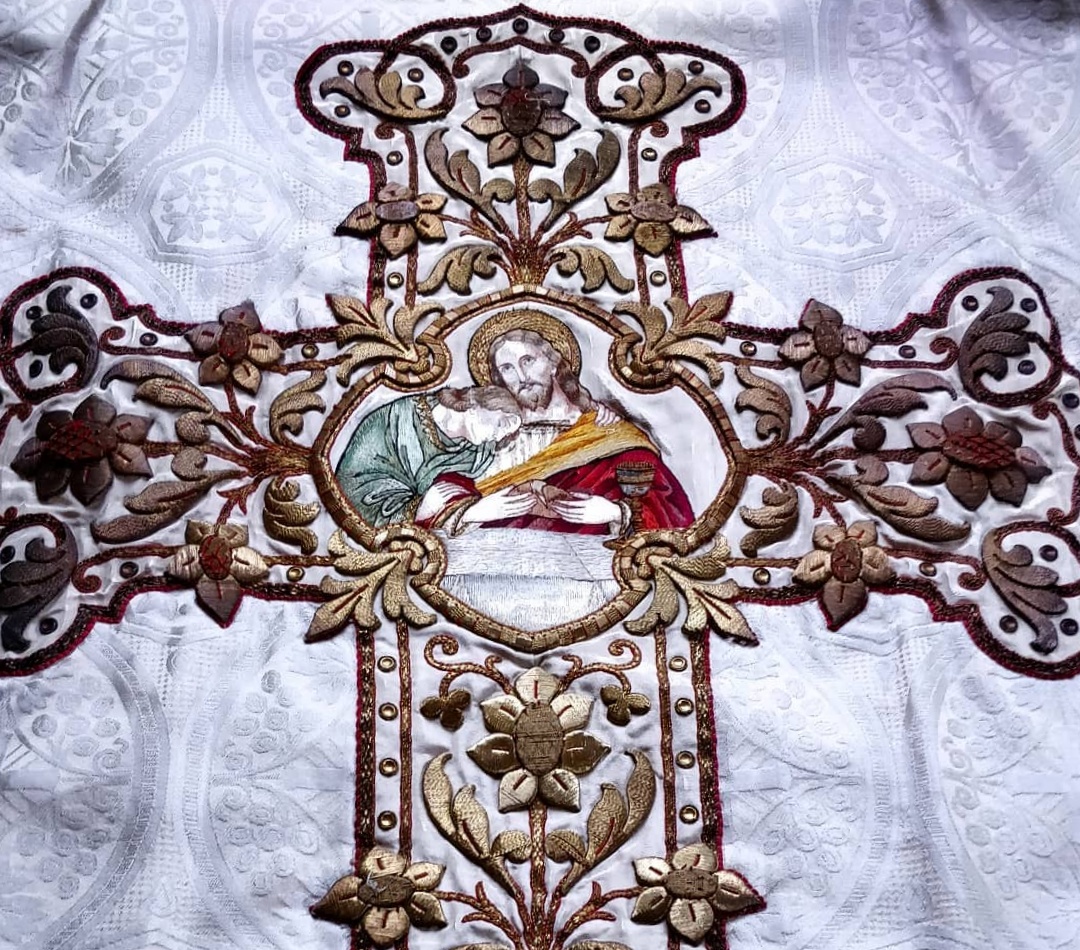…the Triduum liturgies…together form one complete story of the Paschal Mystery—the mystery of the Lord’s suffering, death and resurrection. These several events of the one mystery constitute our redemption, God’s claiming us back for himself.
Claiming back from what? Eternal death as the inevitable result of our sins. Claiming back from whom? There is a strong element of the tradition that would say the Devil, by whose influence and temptation we first sinned. But more deeply we are being redeemed from our own hopeless self-government, our inability to live the good life as we want to do, as we should do, as God has made us to do. We are being redeemed from ourselves. Redemption offers us the only sure hope of salvation, eternal life with God, which is what we were made for, and makes sense of the mystery of our existence…
The name of this Mass reminds us of a truth too often forgotten today. The Mass is more than a re-enactment of the Last Supper. Only tonight is that aspect really emphasized. The Mass is first and foremost, above all and essentially, a sacrifice. It is the memorial of Christ’s self-sacrifice, of his body and life, for us and our salvation, on the Cross. Tonight Christ bequeaths us his sacrificial body sacramentally, veiled in bread and wine. The ancient principle was that those who offered a sacrifice then received the fruits and benefit of the sacrifice by consuming some of what had been sacrificed, as a way of being united with the sacrifice. It is the same principle in the Mass: Christ calls us to offer with him his self-sacrifice, to be united with and in it by consuming what was sacrificed, his body and blood. By using bread and wine as the outer veil for the inner reality we are able to partake of Christ’s sacrifice on the Cross time after time, and again and again. The Mass, therefore, is a memorial of the Cross, not of itself.
But why did our Lord choose bread and wine as the veil for his body and blood? Both bread and wine are able to symbolize a multitude of people being unified, through suffering, to form a new creation. Bread is the new creation of many grains of wheat being ground and crushed in a mill and baked in a furnace. Wine is the new creation of many grapes being crushed underfoot and laid for some time in the coffin of the case in the dark tomb of the cellar. By Christ’s death and resurrection he makes a multitude of people, through his sacrificial body and blood veiled by what appears as bread and wine, into a new creation, into his body the Church, the community of salvation, made fit for heaven.
To enable all this, Christ did two other things in the upper room on that first Maundy Thursday. He ordained the first priests—the apostles—to be the ministers of this new but eternal sacrifice. He sets them apart to offer the new Passover sacrifice for the benefit of all disciples, whenever and wherever they may be. Secondly, he showed that the essence of this new sacrifice is that it is a self-sacrifice. We are not offering lambs anymore; we are co-offering Christ’s self-sacrifice. We do it in two vital and necessary ways: we offer the bread and wine to become Christ’s body and blood offered on the Cross—that is the sacramental way. But there is also what we might call an existential way, a daily-life way: by giving ourselves, sacrificing ourselves, in service of our neighbour, obeying the new commandment to love our neighbour as Christ loves us.
That is what Christ’s washing of the apostles’ feet is all about. Christians share in Christ’s redemptive self-sacrifice both by the sacrament and by our way of life. Life and sacrament cannot be isolated and compartmentalized; they form a unity. That is why the Church warns those who are in unreconciled serious sin not to receive the Lord’s Body; they need to restore the communion between their living and their faith before they can ever contribute to or benefit from communion with the Lord in his Body.
So this Mass of the Lord’s Supper tonight is indeed a thanksgiving: giving thanks for the self-sacrifice of Christ for us on the Cross; giving thanks for allowing us to share in his saving sacrifice through the gift of the Eucharist; giving thanks for endowing the Church with priestly ministers to enable this sharing in the Eucharist till the end of time; and giving thanks that Christ has left us a simple, if rarely easy, way of living in unity with his sacrifice, by our acts of love.
[For various reasons] it was agreed in planning not to include the option of the washing of the feet this year. In its place, let us take a moment to identify those whose feet we need metaphorically to wash, those before whom we need to humble ourselves, those whose forgiveness we need to receive, those who need to receive our forgiveness, those for whom we need to do more by acts of love, self-sacrificial, painful but healing love. Let us in silence call them to mind, pray for them and resolve to find some way soon to “wash their feet.”
There was too little time today, and now I have too little energy, to write a reflection for today’s high feast. So, for your penance and to assist your increase in merit, I inflict upon you the bulk of the homily pretty much as I inflicted upon the parishioners of Scarisbrick tonight. If something in it helps you, Deo gratias.
A blessed Triduum to you all!

Lucky parishioners of Scarisbrick! Blessed Triduum and Happy Easter
A Blessed Easter Father & thank you for your article on the EF Mass in Catholic Herald